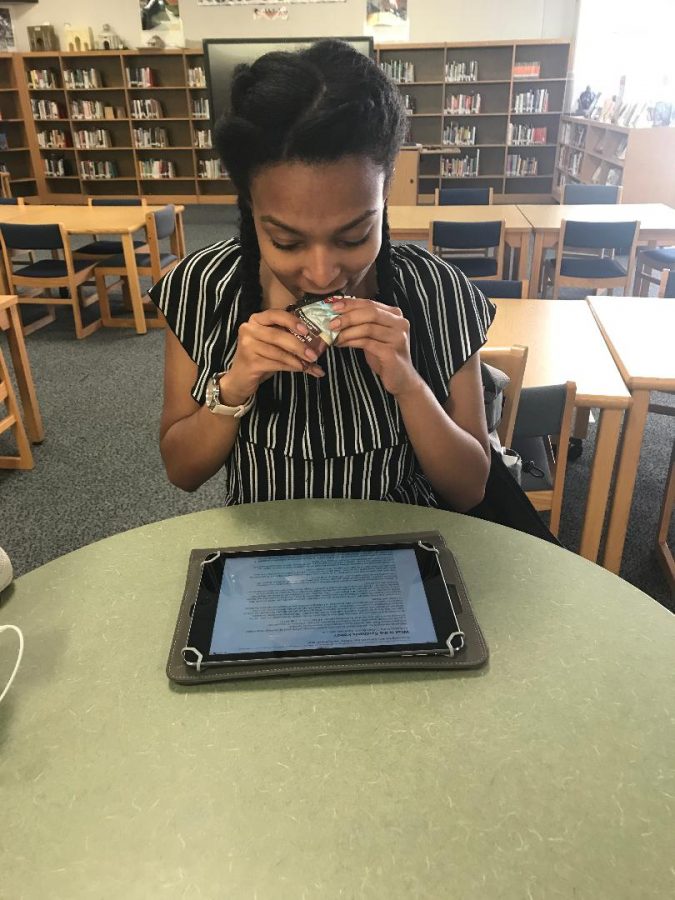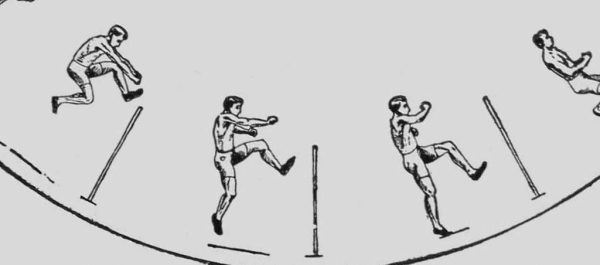Proven methods to help you study for finals
Taking a break from studying, sophomore Sitara Brent takes a bite out of her nutritious Clif Bar. By giving yourself a five minute break and a nutritious snack in between studying, you can increase your energy and maintain your focus.
May 22, 2019
If you are beginning to stress out about upcoming finals, it is okay – you are definitely not alone. In an NYU study of high school students, they found that 80 percent reported being either very or somewhat stressed on a daily basis. By staying focused and doing a little bit of cramming, your worries should start to float away.
First, you have to get your head in the game. Do some deep breathing exercises to help clear your mind, relax, and focus. One of the most common techniques is called 4-7-8 breathing. Breathe in for four seconds, hold it for seven seconds, and breathe out for eight seconds. Deep breathing mimics the way your body feels when it is naturally relaxed, which makes you feel more relaxed.
Next, you have to actively study. Multitasking while studying is a no-go. When you sit down to study, you have to be present and actively learning. Studying in intervals and giving yourself a five to ten minute break in between them helps to keep your mind working and the material less boring. Also, research shows that getting up and moving around during your study breaks can help increase your energy level and keep you focused on studying. Junior Mackenzie Hudson commented, “I tend to study well when I take breaks and alternate between assignments and different topics to study. Taking a five minute break after studying for about thirty minutes and switching to a new topic keeps me focused and energized.”
If you get very unmotivated and do not feel like you are taking in any information that you are trying to study, switch up your location. Having a different view every now and then can be motivating. Just make sure the distractions in these places are minimal; distractions prevent you from being able to actively study.
Finally, practice testing has been found to be the most effective way to study. Whether you do that online through Quizlet or out of a textbook, both help you to be in the right mindset and help you figure out what material you actually understand versus what material you need to study.
With exams right around the corner, it can be easy to procrastinate your studying and just cram the night before. However, even starting a week in advance can help you retain more information and score higher. Good luck, everyone!












